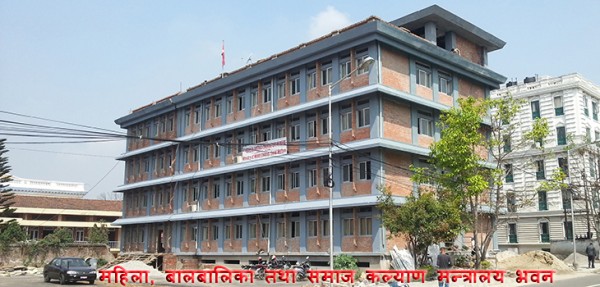
Pratichya Dulal/Kathmandu (Pahichan) January 25- The government has failed to finalise a bill to legalise same-sex marriage even nine years after the Supreme Court order to amend laws that discriminate against Lesbian, Gay, Bisexual, Transgender and Intersex (LGBTI) community.
After the apex court decriminalised homosexuality in 2007 and ordered government agencies to abolish laws that discriminate people based on their sexual orientation, Nepal was hailed as a very progressive society. But the government’s failure to amend laws in line with the strides it made has left LGBTI people frustrated. Nepal’s law still does not allow for same-sex marriage and offers no protection for gay people, who have long been complaining of discrimination and bureaucratic hurdles in obtaining legal recognition of their identity and consummating a married life.
“It has been a long wait,” said Manisha Dhakal, executive director of the Blue Diamond Society, an organisation that works on behalf of sexual minorities. “The Supreme Court decision had given us a ray of hope, but the government’s snail-paced work has left us disappointed,” During the Universal Periodic Review of Nepal’s human rights records and previous obligations in November last year, members of the UN Human Rights Council (UNHRC) had raised questions about delay in fulfilling Nepal’s commitment to legalise same-sex marriage.
In fact UNHRC members have recommended that Nepal immediately act on legalising same-sex marriage. The Nepali delegation led by Deputy Prime Minister and Foreign Minister Kamal Thapa had accepted the recommendation. But LGBTI activists say nothing has been done in the last two months to implement the recommendation. In February 2015, an expert committee formed in 2010 to look into the legal challenges faced by LGBTI people submitted its report to the government, recommending that Nepal legalise same-sex marriage and amend related marriage laws such as property rights, divorce and adoption.
The report submitted to the Ministry of Home Affairs had been subsequently forwarded to the Ministry of Women, Children and Social Welfare (MoWCSW).
“A number of laws will have to be amended in order to legalise same-sex marriage, and we have been holding discussions with the line ministries on the recommendations of the expert committee,” said Ram Prasad Bhattarai of MoWCSW. “We need some more time before we take a concrete decision.”
The marriage act, which will have to be amended, falls under the jurisdiction of MoHA, and the civil code is under the purview of the Ministry of Law. However, it is the responsibility of the line ministry, in this case MoWCSW, to prepare a draft bill and submit it to Parliament.
“We have been pushing the government. They have been saying they ‘are positive and are working on it’, but so far they have done precious little to address our concerns,” said Dhakal of the Blue Diamond Society. The delay in amending the laws has dented the progressive image Nepal had been able to portray.
In 2008, Sunil Babu Pant became the first gay parliamentarian, which was seen as a sign of acceptance and opening up of space for sexual minorities.
In 2011, Nepal added a third gender category to its census, and earlier this year, the government agreed to issue passports that would insert an “O” for other option in the
gender box.
source: The Kathmandu Post
Copyright © All right reserved to pahichan.com Site By: Sobij.